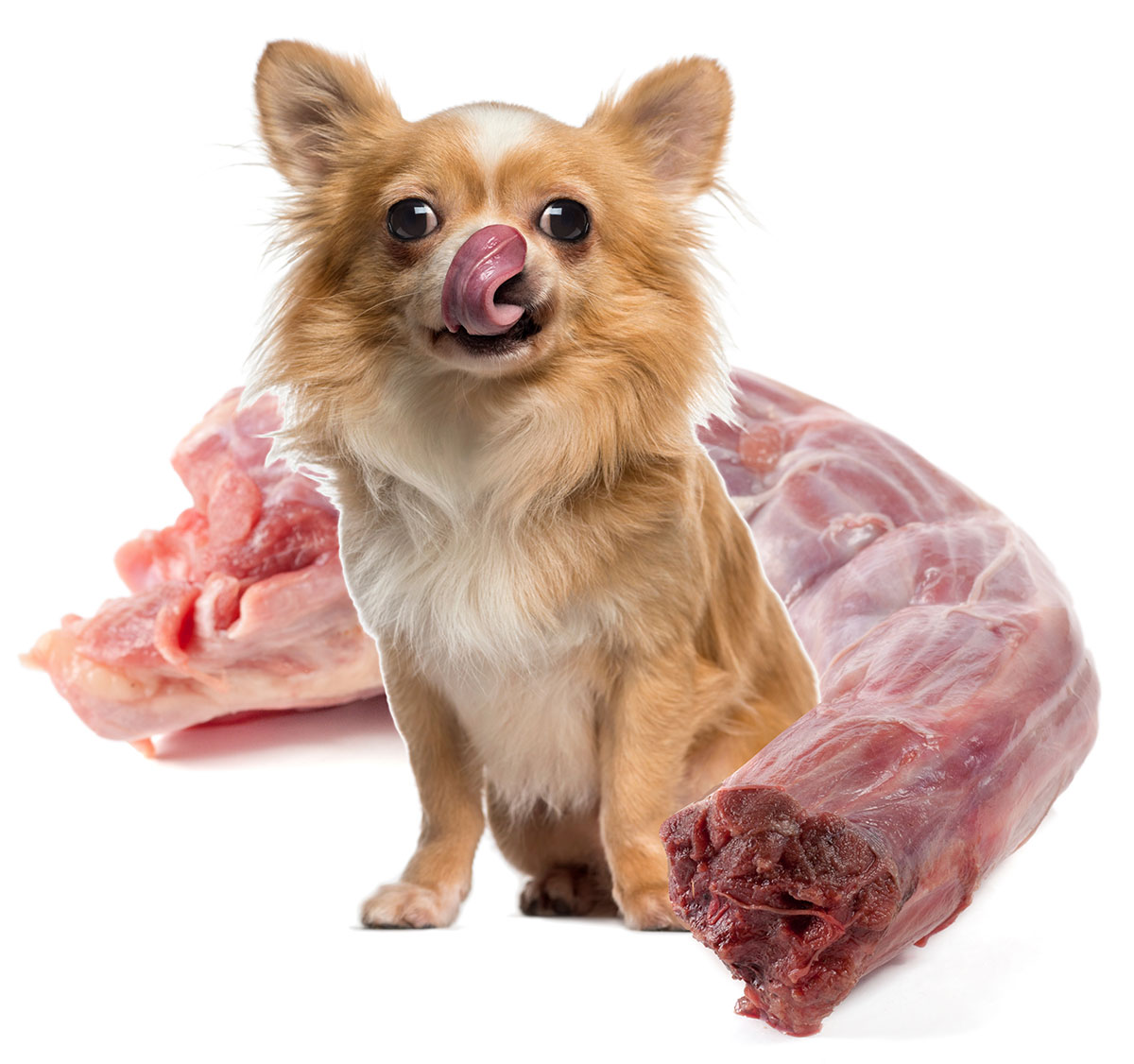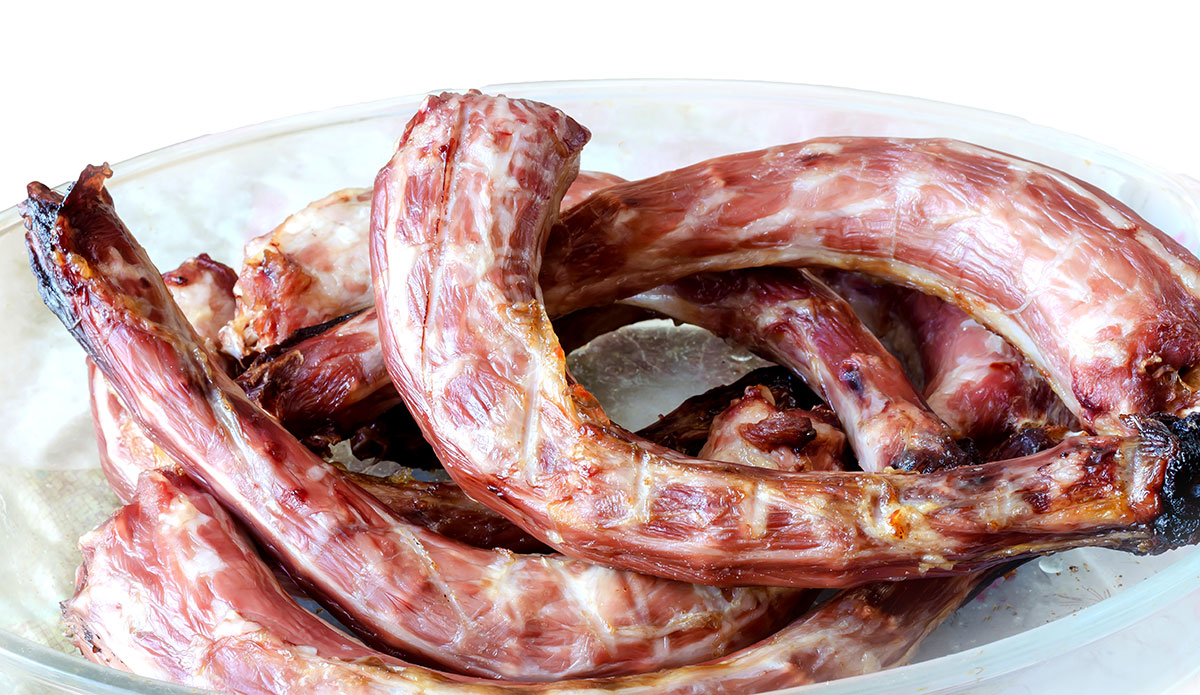When it comes to feeding our beloved furry friends, it’s important to know what is safe and healthy for them to consume. One common question that often arises is whether dogs can eat turkey necks. In this article, we will explore the benefits of feeding your dog turkey necks and provide you with the information you need to make an informed decision.
Turkey necks are often overlooked and discarded when preparing a Thanksgiving turkey. However, these necks actually have their fair share of recipes and can be quite tasty. But can dogs safely eat turkey necks? Let’s find out.
Can Dogs Eat Raw Turkey Necks?
Yes, dogs can safely consume raw turkey necks! These necks are not only chewy and crunchy, but they are also packed with healthy vitamins and minerals. Raw turkey necks can be given to your dog as treats or included in a raw homemade meal.
It’s important to note that when feeding your dog turkey necks, they should always be served raw. Cooking the turkey necks can cause the bones to become hard and glass-like, which can break into sharp splinters when chewed. These splinters can be extremely dangerous and can cause serious injuries to your dog.
Raw turkey necks consist of soft, pliable bone, cartilage, and connective tissue, with bits of meat still attached. A dog’s acidic stomach is designed to digest raw meat and soft bones without much issue. In fact, turkey necks are so soft that you can even break them into two with your bare hands. However, if your dog has weak or missing teeth, it’s best to grind the turkey necks using a meat grinder rather than cooking them.
Is Raw Turkey Safe for My Dog?
The acidity of your dog’s stomach helps to prevent the bacteria in raw food from causing foodborne illnesses. However, it’s important to avoid feeding raw meat to young puppies or dogs with weakened immune systems.
What Are the Health Benefits of Raw Turkey Necks?
Raw or dehydrated turkey necks come with numerous nutritional benefits for your dog. They are excellent sources of protein, iron, vitamins B6 and B12, calcium, and phosphorus. These nutrients are vital for your dog’s overall health and well-being.
Turkey necks are especially beneficial for dogs with arthritis and joint issues due to their high levels of glucosamine and chondroitin. These minerals play a key role in bone development and protection.
In addition to their nutritional benefits, turkey necks also help clean a dog’s teeth and exercise their jaws. Dogs find chewing on raw bones and meat calming and comforting. Freeze-dried turkey necks can be a great way to keep your pup occupied while they are home alone.
Feeding Raw Turkey Necks to Dogs
If you’re planning to incorporate turkey necks into your dog’s diet, it’s important to serve them raw. They can be added to your dog’s daily meals alongside giblets and other “unwanted” cuts of meat. You can also mix them with puréed or dehydrated veggies and fruit to provide a balanced and nutritious meal.
When introducing turkey necks to your dog, it’s best to start slowly and monitor them throughout the day for any adverse effects such as vomiting or diarrhea. If your dog tolerates the turkey necks well, you can serve them as often as two to three times per week, depending on their size and activity level.
It’s worth noting that turkey necks can reach lengths of 10 to 12 inches, so they are best suited for medium and large dogs. For small dogs, chicken necks or duck necks are equally nutritious alternatives that reduce the risk of choking hazards.
Feeding Cooked Turkey Necks to Dogs
Under no circumstances should you feed cooked turkey necks to your dog, regardless of their size. When cooked, the bones become sharp and brittle, which can pose serious risks to your dog’s health. The bones can splinter and become stuck in the digestive tract or cause other issues.
Frequently Asked Questions
Here are some commonly asked questions about feeding turkey necks to dogs:
Q: Can dogs eat other types of poultry necks?
A: Yes, chicken necks and duck necks are safe and suitable alternatives for small dogs.
Q: Can puppies eat turkey necks?
A: It’s best to consult with your veterinarian before introducing turkey necks to puppies. Young puppies have developing digestive systems and may require special dietary considerations.
Q: Can I give my dog frozen turkey necks?
A: Yes, frozen turkey necks can be given to your dog. Make sure they are thawed before serving them.
Q: How should I store raw turkey necks?
A: Raw turkey necks should be stored in the freezer to maintain their freshness and prevent bacterial growth. Thaw them in the refrigerator before feeding them to your dog.
Conclusion
Turkey necks, whether raw, frozen, or dehydrated, are a great addition to your dog’s diet. They provide essential nutrients and offer various health benefits. However, it’s crucial to serve turkey necks raw and avoid feeding cooked turkey necks to your dog. By following these guidelines, you can ensure your furry friend enjoys a safe and nutritious treat.
For more information on feeding turkey to dogs, be sure to visit Pawsoha.

